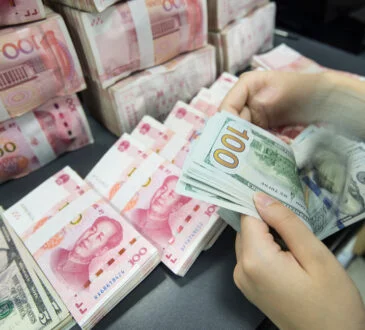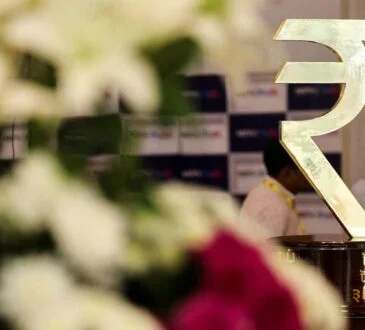The Indian rupee is expected to dip at an all-time low on Friday amid volatility in the Chinese yuan, which traders reckon is a potential risk to carry trades between the two currencies. Non-deliverable forwards indicate rupee will open at 83.73-83.74 to the U.S. dollar, down from 83.6975 in the previous session inching past the lifetime low of 83.72.
The yuan, which last week had slipped to near 7.30, made a high of 7.2021 to the U.S. dollar on Thursday. The rally came despite China announcing an off-cycle monetary policy easing.
continued below
The yuan’s rise may have been triggered by the Japanese yen, which has recovered on weak risk bets and the possibility that the Bank of Japan may hike rates next week, analysts said.
The pickup in volatility in the yuan “will not help” the yuan-rupee carry positions and “the unwinding of this hugely popular” trade will be a headwind for the rupee, a currency trader at a bank said.
The rupee’s higher yield differential relative to the yuan and the low volatility of both currencies have made using the yuan to fund long bets on the rupee among the most attractive carry trades in Asia.
Now the yuan is strengthening against the rupee, impacting the returns on the carry trade. The Chinese currency is up 1.2% against the rupee so far in July.
The rupee on Thursday witnessed a bit of relief, thanks to persistent dollar offers by the Reserve Bank of India.
“There is little doubt that this will continue. The RBI will allow small up moves (on dollar/rupee), if at all,” an FX salesperson at a bank said.
Meanwhile, the advance estimate of the U.S. June quarter GDP showed that the world’s biggest economy expanded at a faster pace than was expected.
Long-maturity U.S. yields fell despite the robust data amid markets remaining focused on the prospect of Federal Reserve easing monetary policy, ANZ Bank said in a note.
Most Read in Industry
Join the community of 2M+ industry professionals
Subscribe to our newsletter to get latest insights & analysis.
Download ETAuto App
- Get Realtime updates
- Save your favourite articles





